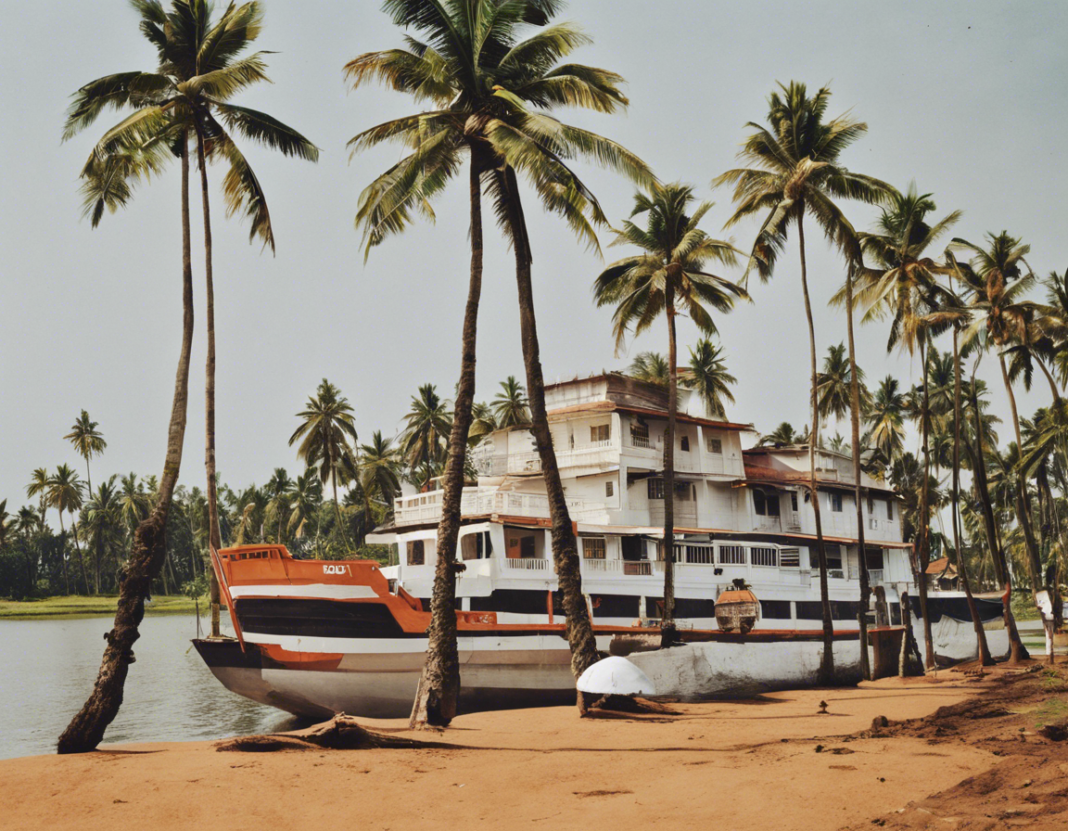With its rich history, vibrant culture, and stunning natural beauty, Kochi in Kerala, India, offers visitors a unique and unforgettable experience. One of the most intriguing aspects of Kochi is its annual festival known as Kochi Rajavu, celebrating the rich cultural heritage of Kerala. In this article, we will delve into the essence of Kochi Rajavu, exploring its traditions, rituals, and significance in the local community.
The Origins of Kochi Rajavu
The term “Rajavu” translates to “Royal Day” in Malayalam, the local language of Kerala. Kochi Rajavu is a traditional festivity deeply rooted in the history of the region. It is believed to have originated during the reign of the Kochi Maharajas, who were known for their patronage of the arts and culture. The festival is a time when the entire community comes together to celebrate their shared heritage and pay homage to the royal legacy of Kochi.
The Essence of Kochi Rajavu
Kochi Rajavu is a multi-day event filled with a whirlwind of activities that showcase the best of Kerala’s art, music, dance, and cuisine. The festival typically kicks off with a grand procession featuring decorated elephants, traditional performers, and colorful floats. Spectators line the streets to catch a glimpse of this majestic parade, which sets the tone for the festivities that follow.
Cultural Performances
One of the highlights of Kochi Rajavu is the series of cultural performances that take place throughout the festival. Local artists showcase traditional dance forms like Kathakali, Mohiniyattam, and Ottamthullal, mesmerizing the audience with their graceful movements and elaborate costumes. Music concerts featuring classical and folk musicians add to the vibrant atmosphere of the event, filling the air with melodious tunes that resonate with the soul of Kerala.
Culinary Delights
No festival in Kerala is complete without a feast for the senses, and Kochi Rajavu is no exception. Food stalls line the streets, offering a delectable array of traditional dishes that tempt the taste buds of both locals and tourists. From spicy seafood curries to sweet delicacies like puttu and payasam, visitors can savor the authentic flavors of Kerala cuisine in every bite.
Traditional Rituals
In addition to the cultural performances and culinary delights, Kochi Rajavu also includes a variety of traditional rituals that hold special significance for the local community. One such ritual is the Pookalam competition, where participants create intricate floral designs using fresh petals and flowers. These colorful creations are a symbol of prosperity and are believed to bring good fortune to the households that display them.
Marketplaces and Handicrafts
During Kochi Rajavu, the streets come alive with bustling marketplaces selling a variety of handcrafted items and souvenirs. Visitors can browse through stalls offering everything from intricately designed Kerala sarees and jewelry to hand-painted murals and wood carvings. This is the perfect opportunity to take home a piece of Kerala’s artistic heritage and support local artisans.
Celebrating Diversity
One of the most remarkable aspects of Kochi Rajavu is the way it celebrates the cultural diversity of Kerala. The festival brings together people from all walks of life, regardless of their background or beliefs, to revel in the shared traditions that bind them together. It is a time of joy, unity, and mutual respect, reminding everyone of the importance of preserving and promoting Kerala’s rich cultural tapestry.
Preserving Traditions for Future Generations
As Kerala continues to evolve and modernize, events like Kochi Rajavu play a crucial role in preserving the age-old traditions and customs that have defined the region for centuries. By passing on these cultural practices to future generations, the festival ensures that the heritage of Kerala remains alive and vibrant, contributing to the cultural identity of the state.
FAQs (Frequently Asked Questions)
Q: When is Kochi Rajavu celebrated, and how long does the festival last?
A: Kochi Rajavu is usually celebrated in the month of January and lasts for several days, culminating in a grand finale.
Q: Is Kochi Rajavu open to tourists, and how can visitors participate in the festivities?
A: Yes, Kochi Rajavu welcomes tourists to join in the celebrations. Visitors can attend the cultural performances, explore the marketplaces, and immerse themselves in the vibrant atmosphere of the festival.
Q: What are some traditional dishes that one must try during Kochi Rajavu?
A: Some must-try dishes include Karimeen Pollichathu (fish cooked in banana leaf), Appam with Stew (rice pancakes with vegetable stew), and Elaneer Payasam (tender coconut kheer).
Q: Are there any specific dress codes or customs that visitors need to be aware of during Kochi Rajavu?
A: While there is no strict dress code, it is advisable to dress modestly and respectfully, especially when visiting religious sites or participating in cultural events.
Q: What are some traditional arts and crafts that are prominently featured during Kochi Rajavu?
A: Handwoven Kerala sarees, Kathakali masks, Coir products, and Metal artifacts are some of the traditional arts and crafts that visitors can find at the festival.
In conclusion, Kochi Rajavu is more than just a festival – it is a celebration of Kerala’s vibrant culture, rich heritage, and enduring traditions. By participating in this annual extravaganza, visitors have the opportunity to immerse themselves in the essence of Kerala, experiencing firsthand the beauty and diversity that define this enchanting region. Let the magic of Kochi Rajavu transport you to a world where art, music, dance, and cuisine converge to create an unforgettable cultural experience.


